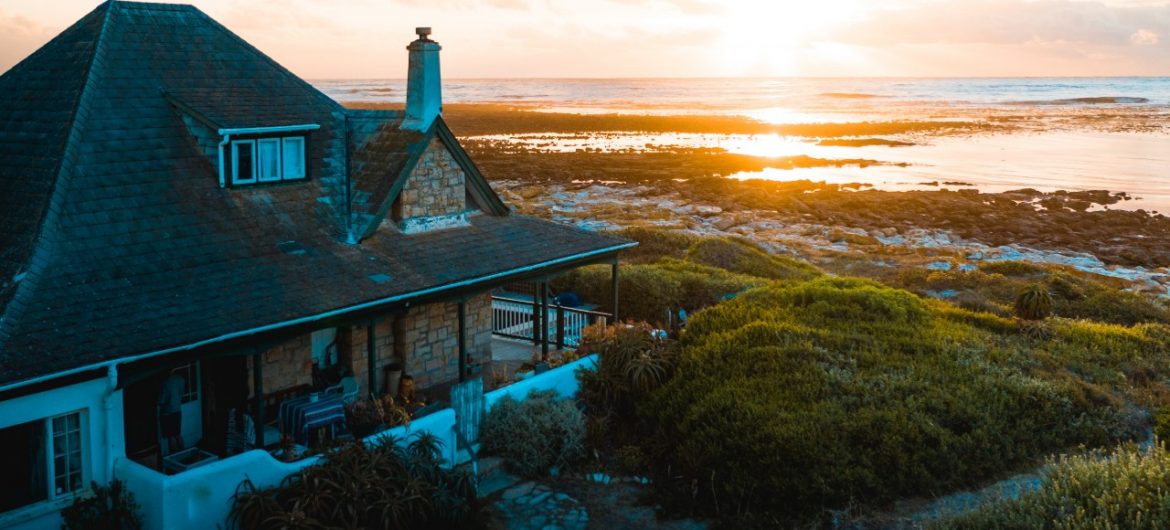Hotels or vacation rentals – who will lead the recovery? The current travel trends point to vacation rentals as travel resumes in this initial phase of recovery. Until the fear subsides or becomes a distant memory, people will want to be in less dense areas – outside of cities – and they will want to be together with their families and away from other people – the need for larger spaces. That being the case, vacation rentals would win this first round of recovery.
Bloomberg reports a surge in demand for vacation rentals. Short term rental companies like Airbnb, Vrbo, and Bookings are seeing a surge in domestic reservations in the U.S. and across the globe. Searches on the internet for vacation rentals have increased.
U.S. searches for Vrbo are now up compared to this time last year, according to a note by Cowen & Co. analyst Kevin Kopelman on Monday, and Airbnb queries are down only around 10%. However, hotels and the wider Expedia brand have yet to get any summer relief with searches still down more than 60%.
Searches for vacation rentals on Google are about at the same level as last year, while hotel searches are down, said Booking Holdings Chief Marketing Officer Arjan Dijk. Consumer appetite has completely changed from a year ago, he said. Significantly more users are signing on to the company’s wish list function and indicating interest in domestic homes over international ones. In fact, the company has seen its business shift to more than 70% domestic travel from 45% the same period last year, he said.
The speed of comeback has startled some but it is not surprising given the pent-up demand. Vacation rentals are leading the recovery because travelers, particularly those living in cities, want to get away and leisure destinations fit their longing for space and change of scenery.
The top destinations in the U.S. on Airbnb are almost exclusively traditional vacation rental markets such as Big Bear Lake in southern California, the Smoky Mountains, along the Tennessee-North Carolina border, and Port Aransas in Texas, according to the company [Airbnb].
Vrbo is seeing similar trends as popular tourist states like Florida and Maine reopen. There’s an “immediate pop” as soon as a destination opens, said Jeff Hurst, president of Vrbo, which accounts for about 20% of Expedia’s total revenue. “If you draw a 250- mile circle around any major metro — every place where you see water in there or mountains or national parks, the homes around it are what’s starting to get booked up,” Hurst said.
The stock market also has priced in the bullish sentiment for vacation rentals. “We have seen a faster recovery within alternative accommodations than in hotels,” Morgan Stanley analyst Brian Nowak wrote in a note last week according to Bloomberg. Shares in hotel companies have lagged the travel platforms that offer alternative accommodations with Marriott, Hyatt and Hilton down by more than 20% this year, compared with Expedia and Booking, which have fallen by 14%.
Recent rebounds play to Vrbo’s strength more so than Airbnb.
Vrbo’s always been in this traditional leisure market. That’s where they started and that’s where they still have … dominance, in terms of that supply. And obviously, that supply has done better. That’s what people are choosing.
People who are going to those vacation destinations are typically older and looking for bigger places to rent, such as four-bedroom houses. Those kinds of spaces are right in VRBO’s wheelhouse, but not in Airbnb’s.
During and in the wake of the coronavirus crisis, people have been leaving big cities for health or safety reasons. While people may again resume traveling to such cities, they’re likely to want to stay on the fringes of those places, outside of their dense urban cores. It’s in such places where hotels can be hard to come by that short-term rental accommodations have flourished.
– Scott Shatford, CEO of AirDNA
Despite these recent positive data, the struggle is real for vacation rental owners still. Some vacation rental businesses are taking themselves out of play. Zillow data shows ‘vacation rental types’ of properties hit the longer-term rental market.
Listing for furnished rentals increased 42.8% from March 1 to May 21. Total furnished listings were up 44% compared to the same time frame in 2019.
Meanwhile, listings for rentals of six months or less rose 23% between March 1 and May 21. These type of listings typically fall in March, but this year, there was a large spike around the time that shelter-in-place orders went into effect.
It is too early to tell whether the travel recovery is pre-mature, but given traveler behaviors, vacation rentals are in a stronger position to meet the current demand compared to hotels.





